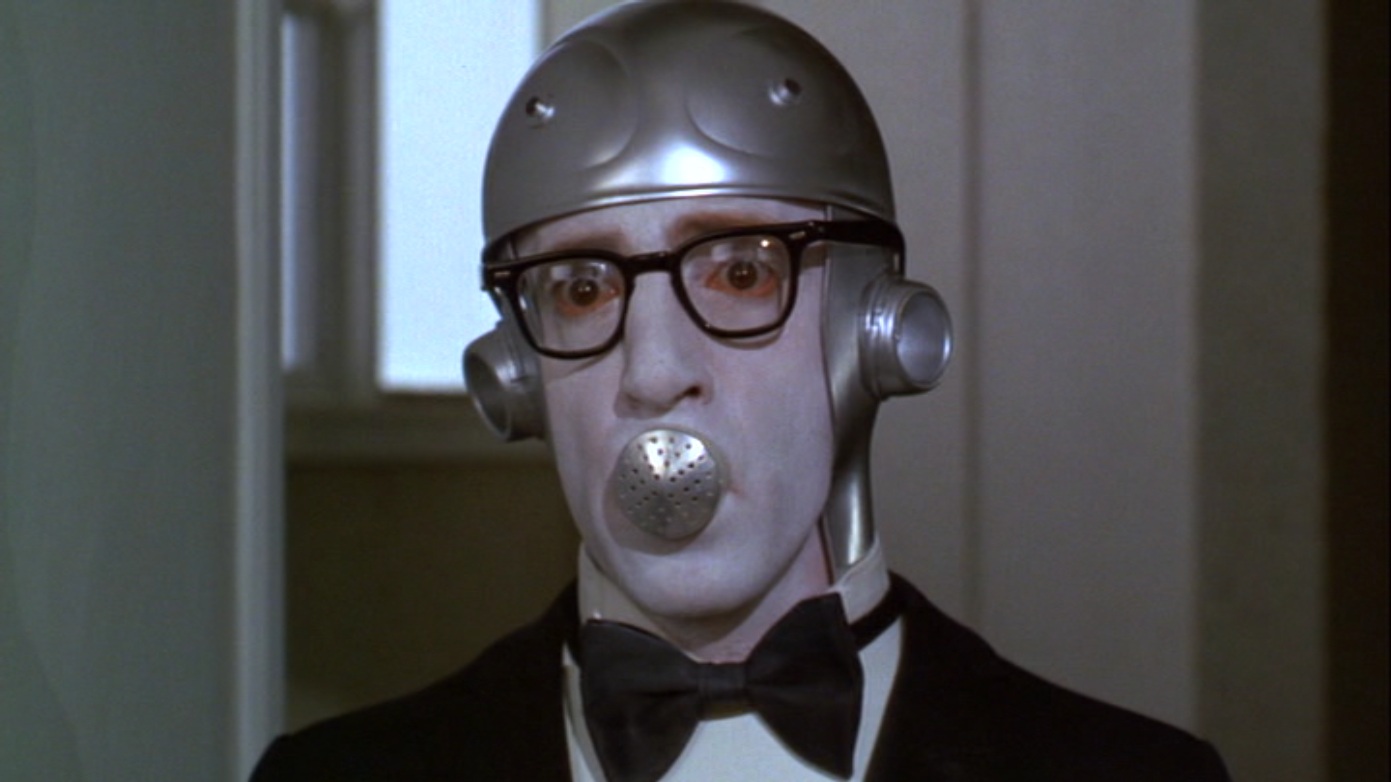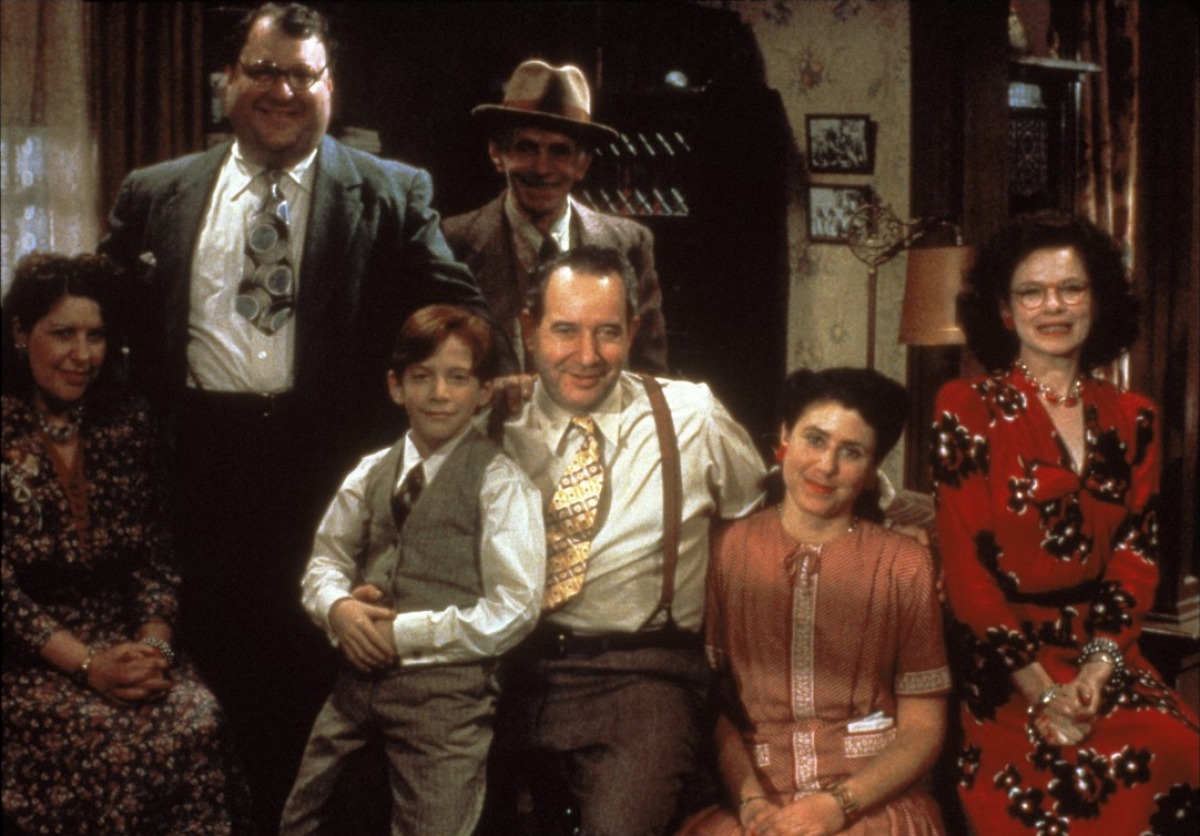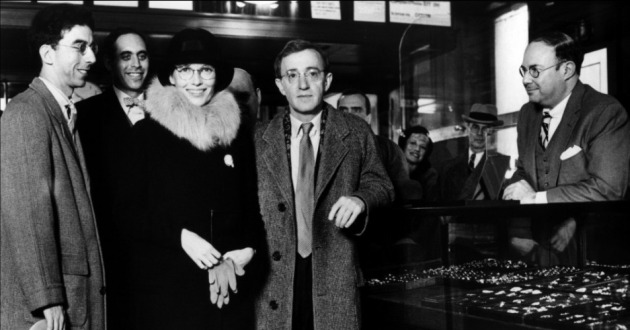There is no beating around the bush when it comes to Woody Allen. Director, actor, screenwriter, playwright and four time Academy Award Winner, he’s done it all. And with his 49th film, Magic in the Moonlight, gracing our screens later this year, it is impossible to ignore a man who has spearheaded American cinema for almost 60 years. But what is it that makes a Woody Allen film just so great?
Failing film school at New York University in 1953 it is hard to imagine the legacy that Allen would go onto establish. Yet it was his contribution to comedy-drama during the 1970’s with the likes of Annie Hall and Manhattan, that not only cemented Allen’s position as a credible and consistent auteur, but introduced a new level of sophistication and grandiose to cinema, definitive only to Allen himself but replicated by many since.
Allen’s strength not only lies with his ability to tell an engaging story – be it rooted in comedy, drama or fantasy – but to successfully and authentically encapsulate the human desire to love and to want to be loved in return. Allen is the quintessential master of visually portraying through films the joys and torments of human relationships.
Throughout his films he has consistently created identifiable characters that not only do we understand, but that we all individually recognize within ourselves. Allen’s ability to create the most natural of atmospheres on screen has earned him the credibility to direct some of the most talented actors of our era. His dry and self-reflective wit expressed both in his acting and writing, his effortless dialogue, and natural but adaptable style has made Allen a celluloid mastermind. And so this essential list to Woody Allen looks at his ten most important works to date, reflecting the many faces of one of America’s finest directors.
10. Sleeper (1973)
Woody Allen’s futuristic comedy about a nerdish health-food storeowner named Miles Monroe awakens from a coma after being cryogenically frozen for 200 years only to discover that he is at the hands of an oppressive Police State in 22nd Century America. Comically played by Allen himself, Miles Monroe is awoken by anti-government radicals in a bid to use Monroe as a spy to overthrow the governments plans to bring the “Aries Project” into effect.
The scientists who revived the ‘alien’ are captured and killed, leaving Monroe left to his own devices in the unfamiliar world of tomorrow’s future. As he tries to locate the ‘rebels’ he must help, Monroe stumbles upon the ignorant socialite Luna Schlosser, played by Diane Keaton, who in spite of her shallow but coy idiocy, aids Monroe is his attempts to defeat the oppressors and save America from itself.
Sleeper is a comical, self-indulgent, and playfully silly essential Woody Allen that offers a light-hearted commentary to a time in American history when the greatest fear was the infiltration of ‘spies and aliens’ into America. In this case, Allen joyfully points the finger at those who feared the worst. Skilfully adopting a classic sense of comedy with its blend of Buster Keaton meets Charlie Chaplin humour, set in the modern world of tomorrow, Sleeper bridges the gap between Allen’s love of the old and his anticipation for the new. With its comical attack on religion, politics, science and bizarre perceptions of the future, Sleeper is a genuinely different take on a Woody Allen classic, saturated with slapstick comedy, crude one-liners and tomfoolery.
9. Radio Days (1987)
A realist comedy, Radio Days is Allen’s personal homage to family life during the Golden Ages of Radio. Narrated by Allen playing a Jewish man named Joe reflecting on his first real love, the radio. Set during the 1930’s, Joe reminisces on the profound memories of his youth and how his love for the ‘talking box’ was very much shared by his dysfunctional but ultimately loving family members alike.
As they live their everyday lives struggling during the midst of the Great Depression, the radio and its glamorous stars are what bounds the family together. On the other hand the rags to riches story of Sally White, an aspiring radio star fantastically played by Mia Farrow, makes for a wonderful contrast of lifestyle during a time where the division between rich and poor was ever prominent in a city forever thriving for the American dream.
Resting heavily on nostalgia and the contrast of the modest lifestyles of the suffering working class, to the glitzy romps of the forgotten celebrities of yesterday, Radio Days pays a sweet reminder to the faded glamour of an era that paved the way for entertainment today. Rather than having a strong character focus, the multiple characters allow for a simple, charming and altogether gentle example of Woody Allen as a director and writer. It is evident that Radio Days factors more as a personal project, more so a film for Allen himself to watch and reminisce rather than for anybody else. A diary entry, crafted with nostalgia and an appreciation for a definitive era in entertainment history.
8. Vicky Cristina Barcelona (2008)
Arguably one of Woody Allen’s more seductive contributions is Vicky Cristina Barcelona. The story centres around two girlfriends and one city: Vicky, the soon to be wed, academic young woman played by Rebecca Hall with a masters in Catalonian culture, and the sexually adventurous, open minded Cristina played by Scarlett Johansson. Barcelona is the final member of the ménage-a-trios with its arts, culture, cuisine and cobbled streets so beautifully captured as if a shot on instagram. Vicky and Cristina decide to spend their summer vacation in the Catalonian capital where a series of events leads them both to meet and separately pursue romantic relations with the charming but aloof artist Juan Antonia, played by Javier Bardem.
As a complicated love triangle ensues between the two friends and the artist, situations are dramatically heightened when Juan Antonia’s mentally and emotionally unstable ex-wife, María Elena, agonisingly played by Penélope Cruz, returns to Barcelona and is forever present and forever in love with Antonia, as he is with her.
Vicky Cristina Barcelona is a fine example of Allen’s portrayal of the complexities of human relationships and how so very often emotions, lust and infatuation override any human ability to reason and use logic. What makes this Woody Allen film particularly interesting is it’s unexpected but fantastic cast, most notably the fluid and some what genius acting from Penélope Cruz and Javier Bardem, whose transition from Spanish to English dialogue during numerous scenes, works so well, allowing a new appreciation for not only the actors, but for Allen’s capability to capture the seemingly difficult; two opposing cultures simultaneously and beautifully running adjacent to one another.
7. Zelig (1983)
An off-the-wall mockumentary about a man named Leonard Zelig, played by Allen, who suffers with a nondescript condition and a burning desire to fit in and be liked, is able to physically and mentally adapt to the mental characteristics and the physical being of strong personalities around him. The documentary follows Zelig as he receives therapy and treatment from Dr Eudora Fletcher, played by Mia Farrow, right through to the intense years where Zelig developed mass celebrity status, incorporating interviews with academics and friends of Zelig, bringing this remarkable character to life.
Narrated as if a 1920’s newsreel with a tinny voice narration, Zelig is arguably one of Allen’s strangest pictures with its believable historical encounters and the use of archive footage very carefully manipulated to coincide and complement the story of Leonard Zelig. It is clear that much deliberated thought went into the craftsmanship of Zelig, and Allen plays the troubled character with such fragile but genius conviction that it is important to regard Zelig as an essential Woody Allen film. Like nothing seen before, it is a daring and humorous picture, one that is often forgotten.
6. Manhattan (1979)
As Jean Luc Goddard captures Paris so beautifully in A Bout De Soufflé, Allen offers a similar homage to New York City in Manhattan. An undulating conversation runs throughout Manhattan, with Allen once again pouring his own frustrations into the script, his anxieties towards women being a focal point of his character. Isaac, also played by Allen, is a forty-something-year-old man tormented by women. Having a fairly open affair with an underage 17 year old whilst simultaneously struggling to co-exist with his ex-wife, played by Meryl Streep, now in a lesbian relationship and about to publish a book about her disastrous failed marriage to Isaac.
To further complicate Isaac’s anxieties and situation he then meets and falls in love with the prim and somewhat hedonistic Mary, as played by the familiar Diane Keaton, who happens to be the mistress of Isaac’s best friend. A tangled state of affairs, self-righteousness and confusion ensues Isaac as he struggles to break through his mid-life crisis and realise what it is he really want’s from life.
It is very clear to see why so many regard Manhattan as one of Allen’s best films. Aesthetically it is exceptionally attractive, gorgeously shot in black-and-white, showing off the city of dreams. Narratively it’s deceitful, charming, witty, and on times a little neurotic. It is perhaps one of Woody Allen’s most identifiable pictures with his familiar musky jazz composition and sharp narration.
One call for question is Allen’s ease and comfort in portraying a middle-aged man openly engaging in a relationship with a young girl. In Allen’s personal life it has been somewhat of a public matter his relations with younger girls, but what Manhattan achieves today is a reminder of a time when certain topics were simply ignored or brushed under the rug, and further accentuates how far we have advanced since 1978 with a growing sense of equality amongst both sexes.




